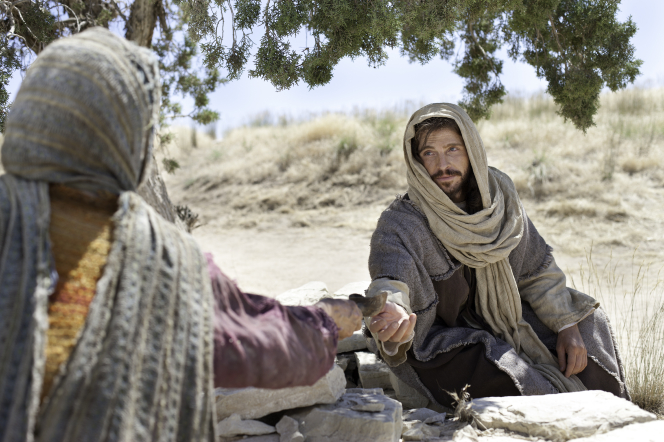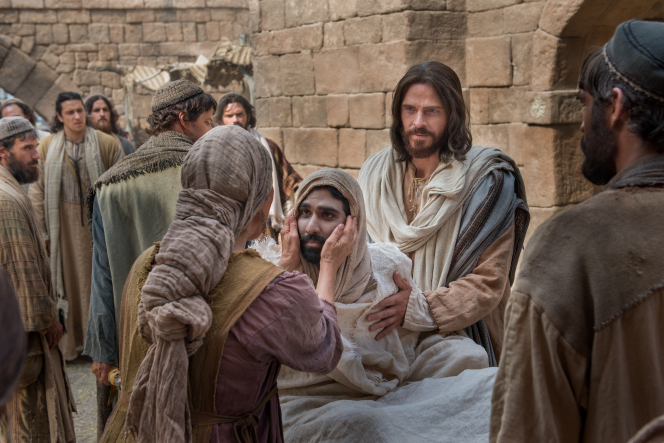
This post is about the last part of the talk by President Spencer W. Kimball Jesus: The perfect Leader . I divided it in three part to keep each post relatively short. This is the link to the first part of the post Jesus: The Perfect Leader and this is the link to the second part.
Secular leadership
Those individuals whom we most love, admire, and respect as leaders of the human family are so regarded by us precisely because they embody, in many ways, the qualities that Jesus had in his life and in his leadership.
Spencer W. Kimball
Ulisses S. Grant commanded the victorious Union army during the American Civil War (1861-1865) and served as the 18th U.S. president from 1869 to 1877. As the Civil War was reaching its end, and the Union was close to victory, Grant was worried that humiliating the South with harsh terms of surrender would have profound negative effects, and the eventual reunification of North and South would take much longer than necessary. Grant didn’t seek vengeance from his position of strength, but offered confederate soldiers the right to return home to care for their families, and officers were even allowed to keep their side arms and horses. General Lee, the defeated commander of the Southern Army commented that those terms “will have the best possible effect upon the men. It will be gratifying and will do much toward conciliating our people.”
Conversely, those leaders in history who have been most tragic in their impact on mankind were tragic precisely because they lacked to almost any degree the qualities of the Man of Galilee. Where Jesus was selfless, they were selfish. Where Jesus was concerned with freedom, they were concerned with control. Where Jesus was concerned with service, they were concerned with status. Where Jesus met the genuine needs of others, they were concerned only with their own needs and wants. Where Jesus was concerned with the development of his disciples, they sought to manipulate mortals. Where Jesus was filled with compassion balanced by justice, they have so often been filled with harshness and injustice.
Spencer W. Kimball
There is plenty of evil leaders to choose from in history. For example, there is the famous King John, considered by many the most evil monarch in Britain’s history, and the villain in the tales of Robin Hood. He was a depraved tyrant and a hopeless leader in war to the point that his subjects rose up and forced the Magna Carta on him. He tried to steal the throne from his brother, Richard the Lionheart. When his enemies tried to stop him, he threw them in a castle and starved them to death. In order to raise money for his military purposes, he heavily taxed the people of England, confiscated lands, and imprisoned and tortured Jews until they would pay him what he wanted.
Perhaps all of us would not be the perfect example of leadership, but all of us can make a serious effort toward approaching that great ideal.
Spencer W. Kimball

Most of us will never find ourselves in situations of great power and influence, like being kings and presidents of nations. However, in our more ordinary lives, we will have the opportunity to choose what kind of leader we want to be. We will be tempted to use people for our own selfish purposes, while at the same time we will be given opportunities to bless their lives. The more we learn to follow the Savior, even if we will never be perfect like him, the more we will experience true success as leaders.
Our potential
One of the great teachings of the Man of Galilee, the Lord Jesus Christ, was that you and I carry within us immense possibilities. In urging us to be perfect as our Father in Heaven is perfect, Jesus was not taunting us or teasing us. He was telling us a powerful truth about our possibilities and about our potential. It is a truth almost too stunning to contemplate. Jesus, who could not lie, sought to beckon us to move further along the pathway to perfection.
Spencer W. Kimball
I could say that it is only because I know that Jesus cannot lie that I believe the amazing truth that we can become perfect. However, even before learning about the truths of the Restored Gospel, I had a feeling and a hope inside me that had pushed me to do better, and especially to believe in the impossible, or that we can perfect ourselves. The Restored Gospel, as taught by the Church of Jesus Christ of Latter day Saints, however, helped me to understand that we absolutely need the Savior to be perfected, that we cannot reach that goal by our efforts alone. Even to become better leaders, we can turn to Jesus, the Perfect Leader, and ask for his help to become what we can our best selves.
Each of us has more opportunities to do good and to be good than we ever use. These opportunities lie all around us…
We must remember that those mortals we meet in parking lots, offices, elevators, and elsewhere are that portion of mankind God has given us to love and to serve. It will do us little good to speak of the general brotherhood of mankind if we cannot regard those who are all around us as our brothers and sisters…We need to remember the parable Jesus gave us in which he reminded us that greatness is not always a matter of size or scale, but of the quality of one’s life.
Spencer W. Kimball

Many young people tend to be idealist, and so usually are also converts to a new faith. Many of them want to do great things, and “save the world” or share their faith in visible ways; they pray for all the little hungry children of the world, or they want to raise to positions of prominence. There is nothiong wrong with those desires, but with age or maturity, many realize that if we want to save the world, we need to do well the little things, we need to start looking around us, but closer, to those people who are in our circle of influence.
The scriptures contain many marvelous case studies of leaders who, unlike Jesus, were not perfect but were still very effective. It would do us all much good if we were to read them—and read them often. We forget that the scriptures present us with centuries of experience in leadership, and, even more importantly, the fixed principles upon which real leadership must operate if it is to succeed. The scriptures are the handbook of instructions for the would-be leader.
Spencer W. Kimball
I think of the Apostles Peter or Paul, for example. We learn of their limitations as men, but we also learn of their great works and even miracles. With the help of the Lord they were transformed in great spiritual leaders, similar to the Master.
The perfect leader
I make no apology for giving something of the accomplishments of Jesus Christ to those who seek success as leaders
If we would be eminently successful, here is our pattern. All the ennobling, perfect, and beautiful qualities of maturity, of strength, and of courage are found in this one person. As a large, surly mob, armed to the teeth, came to take him prisoner, he faced them resolutely and said, “Whom seek ye?”
The mob, startled, mumbled his name, “Jesus of Nazareth.”
“I am he,” answered Jesus of Nazareth with pride and courage—and with power: the soldiers “went backward, and fell to the ground.”
A second time he said, “Whom seek ye?” and when they named him, he said, “I have told you that I am he: if therefore ye seek me, let these [his disciples] go their way.” (John 18:4–8).
Spencer W. Kimball
Even in this extreme situation, as later, even on the cross, the Perfect Leader was worried about the well-being of His followers. No selfishness in Him was to be found until the end. What an example!
Jesus…really does embody all those virtues and attributes the scriptures tell us of. If we can come to know that, we then know the central reality about man and the universe. If we don’t accept that truth and that reality, then we will not have the fixed principles or the transcendent truths by which to live out our lives in happiness and in service. In other words, we will find it very difficult to be significant leaders unless we recognize the reality of the perfect leader, Jesus Christ, and let him be the light by which we see the way!
Spencer W. Kimball

Trackbacks/Pingbacks